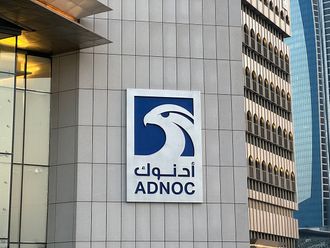Dubai: So what is sound financial advice? Part of the answer involves allocating resources in the right proportion and in the appropriate financial vehicles for short-, medium- and long-term goals. These have to be achieved mainly via financial instruments which invariably involve charges.
These charges are often a mystery and not clearly understood. Given that background, is the advis-ory business a luxury or a necessity?
There is no such thing as a ‘free lunch'
The first thing to understand is that no service whatsoever can be free. For example, a savings account may pay a given rate of interest and the account may not bear any charges.
What you do not see of course is how much the bank is making on the money you are lending. For example, you may receive 5 per cent but the bank could be lending it at 10 per cent.
If you were able to contact the borrower and lend directly you would make the extra 5 per cent. Of course in reality it would be difficult to locate a suitable borrower. And if the borrower defaulted you would be out of pocket whereas by dealing with a bank the latter would absorb any bad debts.
How does this work for financial advice?
How do financial advisers get paid? Advisers may well be tempted to say that they work for nothing and that their work is purely charitable.
However, it will be awkward to keep a straight face so they have to explain that they are not paid directly by the client but via commissions and fees paid to their (hopefully licensed company) by the various institutions to which clients are referred.
This used to be the case universally but in western countries financial advisers are now becoming more generally paid on a fee basis.
Fees may be based on an hourly rate. This is how accountants and lawyers can also be paid. Alternatively there may be an annual charge.
Why would anyone wish to pay fees?
One reason is that financial planning is now taken more seriously in the West and people are prepared to pay for sound financial advice. There is also a greater degree of regulation in the West and advice is more likely to be completely independent when commissions are not involved.
I would prefer the UAE environment to move towards that direction but the ‘offshore' world is very different from the ‘onshore' world where people generally stay in one place and can use the same accountant, lawyer or financial adviser for life.
Expatriates are not used to paying fees for such services and would be unlikely to welcome their introduction. Such a cultural challenge is faced in the UAE. Also, the products available to expatriates generally have charging structures that are geared to paying commissions and would have to be revamped if fee paying became the norm.
What are these charges?
They vary considerably from product to product but are generally comparable from one institution to another. The charges have to be sufficient to cover all the institution's expenses, overheads, marketing costs, commissions to intermediaries and enable them to make a profit, without which they would not remain in business.
Many have not and have fallen by the wayside in recent years. Fortunately, the legal structures are such that investors are still protected. Charges on a lump sum investments may be from 3 per cent to 7 per cent initially plus ongoing annual charges of 1 per cent to 2 per cent, not counting annual fund management charges which can range from less than 1 per cent to over 3 per cent for highly specialised funds.
A larger portfolio may not have an initial charge but would have annual charges in the region of 1.5 per cent to 2.5 per cent.
Added to this would be an adviser fee for larger investors. Because life insurance takes more time to sell and the underwriting requirements can mean that a long time elapses from the sale to the payment of commission, thus adviser "income" is quite high and can amount to as much as the first year's premium.
What about regular savings and pension plans?
These can indeed be quite expensive for the smaller investor. This is related to the time and expense involved in selling the product and the high cost of administering such plans.
This is why I would now rarely advise anyone taking out such a plan unless they can comfortably save at least $500 (Dh1,836) a month and have sufficient reserves and certainty of future income to ensure they can maintain their commitment to the end of the plan.
Such plans are an essential part of financial planning unless other substantial assets are held.
Stopping contributions or surrendering a plan in the early years can, however, lead to one receiving less than has been invested. This is not a reason for not starting a retirement plan but a commitment to the plan is essential.
There are alternatives to contractual savings plans but they tend to be fairly expensive because they are costly to administer and people rarely keep them going for very long.
In other words, when access is easy it is too tempting to use the funds for reasons other than intended, with the consequence that essential long-term needs are not being met.
So what is the answer to the question in the title?
I guess it has to be that having good financial advice is both a luxury and necessity. Corners can be cut, but the same adage applies in this field as to the person who decides to become his own lawyer!
There is a price to be paid, albeit indirectly through charges, but the field is no longer one in which the amateur can play.
Good advice is costly in any field, whether it is legal, accounting or personal finance. But not taking advice can be even costlier!
The writer is the Chairman of Mondial Financial Partners.












